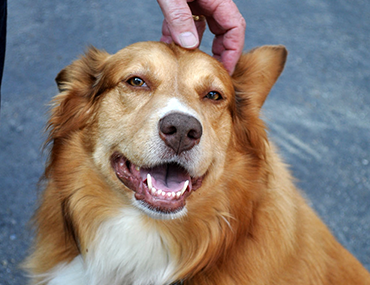Overview
Our furry friends have plenty of natural tools available to keep them healthy. One of those tools is the lymphoid system, an important part of the body’s immune system defense against infections, viruses, and bacteria. Lymphoid tissue can be found throughout your pet’s body and is made up of lymphocytes, white blood cells that work to protect the body from disease.
Sometimes, however, the very system meant to protect our pets can go awry. Due to changes in the body not entirely understood, Lymphocytes can become destructive and reproduce uncontrollably. When that happens, lymphosarcoma (lymphoma)—a cancer of the lymphocytes—can develop.
Unfortunately, the exact cause for the disease is unknown. While no breed of cat is known to have a higher risk of lymphoma than other breeds, those infected with feline leukemia virus (FeLV) and feline immunodeficiency virus (FIV) are at increased risk of developing lymphoma.
As for our canine friends, Boxers, Golden Retrievers, and Bassett Hounds are all at higher risk for the disease.
Symptoms
Because lymphoid tissue is found throughout your pet’s body, lymphoma can emerge in many different locations, including the lymph nodes, liver, spleen, gastrointestinal tract, and skin. The disease, once diagnosed, is classified according to the location in the body in which the cancer begins.
General symptoms include lumps and bumps, which indicate enlarged lymph nodes. These can appear as swellings in the neck behind the jaw, behind the knees, in front of the shoulder blades, and elsewhere.
General symptoms of the disease include lethargy, loss of appetite, and weight loss. In addition, certain signs can be indicative of certain types of lymphoma:
- Chest – Coughing and difficulty breathing
- Gastrointestinal tract – Signs of vomiting, diarrhea, and blood in the stool
- Spinal cord – Impaired movement
- Kidneys – Increased drinking and urinating
- Skin – Raised growths
Diagnosis
If lymphoma is suspected, your veterinarian will likely recommend the following blood work:

- A complete blood count to evaluate the red, white blood cells and platelets
- Chemistry tests to evaluate kidney, liver, and pancreatic function, and sugar levels
- Electrolyte tests to ensure your pet isn’t dehydrated or suffering from an electrolyte imbalance
- Urinalysis to rule out urinary tract infection and other disease
- Feline leukemia virus and feline immunodeficiency virus (FeLV/FIV) tests in cats as these viruses can lead to lymphoma.
- In dogs - screening for vector-borne disease
The most common way to diagnose lymphoma is to take a sample of the affected tissue. Methods include:
- Needle aspiration
- Biopsy of affected tissue
- An x-ray or ultrasound of the chest and abdomen may also help your veterinarian identify affected regions of the body. When diagnosed, lymphoma is classified by stage according to severity, from Stage I-V.
Treatment
It is very important to pursue treatment because the average life expectancy of a pet with untreated lymphoma is not long. Methods of treatment include:
- Chemotherapy for general treatment
- Radiation therapy (in some cases may be combined with chemotherapy)
- Your veterinarian may refer you and your pet to a veterinary oncologist for the latest in effective treatment. Treatment rarely cures lymphoma, but most pets tolerate chemotherapy very well and enjoy a good quality of life after the cancer goes into remission. It is not unusual for remission to last for 12 months or longer, but this is ultimately dependent on the stage of cancer and other factors, such as age.
Prevention
The cause of lymphoma is unknown, so there is no known method of prevention. To help reduce the severity of the disease and increase the length and quality of life for your pet, it is important to focus on early detection, treatment, and management of the disease.
If you have any questions or concerns, you should always visit or call your veterinarian – they are your best resource to ensure the health and well-being of your pets.
